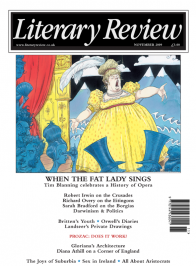Christopher Kelly
Embracing The Everyday
428 AD: An Ordinary Year at the End of the Roman Empire
By Giusto Traina
Princeton University Press 203pp £16.95
In the fifth century AD the Roman empire was fatally fractured. By the 490s, the West had splintered into a series of rival kingdoms: the Vandals in North Africa, the Visigoths in Spain, the Franks in Gaul and the Ostrogoths in Italy. In England, the fragmentation of authority and the influx of Saxons from Germany provided the backdrop for the later legends of King Arthur and the Knights of the Round Table (a politically incorrect tale of a briefly unified Little Britain valiantly resisting a growing European menace). By contrast, the Roman empire in the East retained its integrity. The great arc of prosperous provinces stretching from the Balkans through Turkey, Syria, and round to Egypt and Libya continued to be controlled from Constantinople. In the core territories surrounding the imperial capital, Roman rule continued unbroken for another thousand years. It was not until 1453 that Byzantium finally fell to Arab invaders.
The great East–West divide that so sharply separates the fate of the Roman empire in the fifth century is also mirrored in the writing of its history. More attention has been focused on the West. The decline and fall of the Roman empire (in truth only half of

Sign Up to our newsletter
Receive free articles, highlights from the archive, news, details of prizes, and much more.@Lit_Review
Follow Literary Review on Twitter
Twitter Feed
Under its longest-serving editor, Graydon Carter, Vanity Fair was that rare thing – a New York society magazine that published serious journalism.
@PeterPeteryork looks at what Carter got right.
Peter York - Deluxe Editions
Peter York: Deluxe Editions - When the Going Was Good: An Editor’s Adventures During the Last Golden Age of Magazines by Graydon Carter
literaryreview.co.uk
Henry James returned to America in 1904 with three objectives: to see his brother William, to deliver a series of lectures on Balzac, and to gather material for a pair of books about modern America.
Peter Rose follows James out west.
Peter Rose - The Restless Analyst
Peter Rose: The Restless Analyst - Henry James Comes Home: Rediscovering America in the Gilded Age by Peter Brooks...
literaryreview.co.uk
Vladimir Putin served his apprenticeship in the KGB toward the end of the Cold War, a period during which Western societies were infiltrated by so-called 'illegals'.
Piers Brendon examines how the culture of Soviet spycraft shaped his thinking.
Piers Brendon - Tinker, Tailor, Sleeper, Troll
Piers Brendon: Tinker, Tailor, Sleeper, Troll - The Illegals: Russia’s Most Audacious Spies and the Plot to Infiltrate the West by Shaun Walker
literaryreview.co.uk